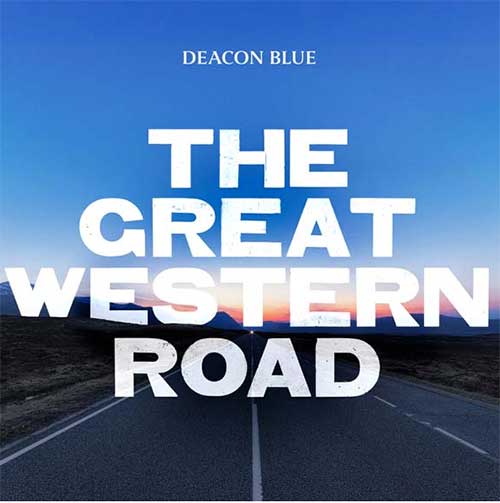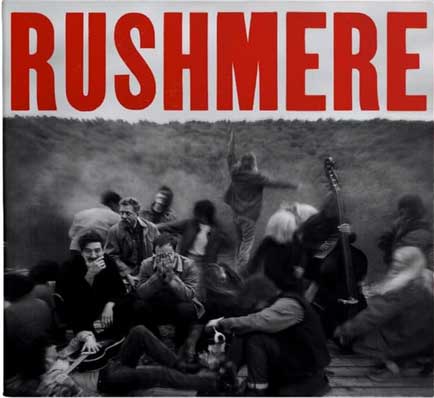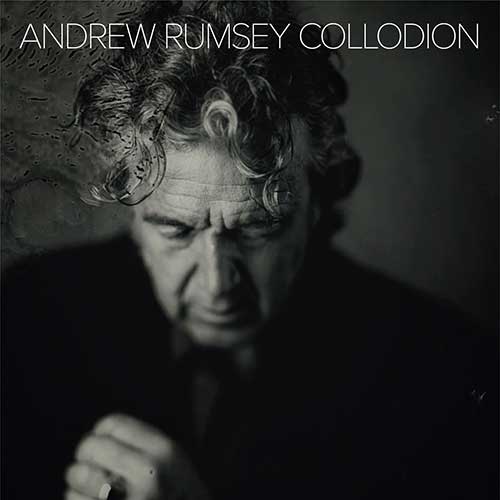Deacon Blue – The Great Western Road (Cooking Vinyl Limited)
Mumford and Sons – Rushmere (Glassnote Records)
Andrew Rumsey – Collodian (Gare du Nord Records)
Knowing how best to develop your sound as you progress as a band or musician is a conundrum which many musicians do not solve. The best, make significant changes in style while retaining their core interests, while others continue to plough the same furrow, often with diminishing rewards.

Deacon Blue, after two hiatuses, are in the full flush of a late flowering, Mumford and Sons are returning to their original base after a somewhat unconvincing reinvention, and Andrew Rumsey is on his second album in a similar style.
Deacon Blue arrived with their soulful, expansive sound fully in place on their debut Raintown. They ratcheted up the beats to popular appeal on When the World Knows Your Name, songwriter Ricky Ross having been influenced by the all-out vocal approach of Lone Justice’s Maria Mckee. They reined it back in on Fellow Hoodlums, which has more light and shade as a result, and is an album that they felt exemplified the classic Deacon Blue sound. Their fourth album (Whatever You Say, Say Nothing) was a particularly strong set of songs with a more experimental sound that did not prove quite as popular, although to my mind it is their best. That was it, until the first of several returns which have resulted in ever stronger albums all broadly utilising the classic Deacon Blue sound. The Great Western Road is the best of the recent albums, which is going some, as each has been a strong set.
Ross is now a very consistent songwriter, who knows his themes well. These were first articulated on ‘Dignity’ – ‘I’m thinking about home / And I’m thinking about faith / And I’m thinking about work’ – and have been carried through into deeply moving reflections on life as a journey involving development, maturity and returning home.
‘The Great Western Road’ itself is about the need for new challenges and experiences. Memories prove important on the journey, whether celebrating moments of exhilaration (‘Late ’88’) or awareness of the necessity of always moving on (‘How We Remember It’). The journey is always undertaken ‘Underneath The Stars’, which provide a consistent backdrop and point of orientation. ‘The Curve of the Line’ is what is followed for direction, with God, the Devil, and other people encountered. In all the confusion of change and movement ‘People Come First’, as the anthemic third track reminds us. Relationships are central to getting through and so awareness of death approaching and leaving one of a couple to cope on their own is the final challenge (‘If I Lived on My Own’). Much of life – it’s vicissitudes and joys – is compelling gathered up and explored here on what is a great, late album.

Mumford and Sons are returning to their beginnings on Rushmere with an album that reverts to their folk roots after the sidestep of two underwhelming alt-rock forays. Rushmere itself refers to a pond on Wimbledon Common, a place the band members would gather before their sound had cohered and their careers had taken off. The title track speaks of their journey, return, and desire to be found as their authentic selves once again.
There is a dilemma here, as collaborations with the likes of Baaba Maal or Pharrell Williams have often been excellent but have not been pursued further. Similarly, the personal nature of Marcus Mumford’s wonderful solo album has not translated across to the efforts of the band. They have essentially decided to retrench rather than pursue new avenues musically and while the end result is strong, it is a case of a step back rather than a step forward.
That said, there is much to enjoy on Rushmore. The album begins with another of their many songs that do what early Soul music often did, by appropriating Biblical language and imagery for songs which could either be addressed to a human or divine lover (‘Malibu’). The resulting ambiguity keeps both the sacred and secular audience engaged, while providing added depth to songs that are then not simply silly love songs.
‘Monochrome’ inhabits similar territory, although clearly addressed to a human lover, yet with that person offering love that in some form is Christ-like:
Hyacinth girl
You are peace
is Christ in the ground beneath your feet
How to arrive at this place is the question or issue posed in many Mumford and Sons songs, making instability the problem to be resolved – ‘Man is a giddy thing’, ‘Why do I keep falling?’ Their search is often for the relationship or place that will provide stability:
I can’t say, “I’m sorry,” if I’m always on the run
From the anchor
(“Anchor”)
In ‘Surrender’, biblical language is again the means by which the protagonist expresses readiness to leave the “treacherous line” that has been walked in order to be held “in the promise of forever”.
Outside of these typical topics, some songs venture into other territory. While not known for addressing contemporary issues or politics, ‘Truth’, being about the Californian wildfires, may carry within it a veiled political comment:
If there’s a fire in the almost places
Leaves us nowhere else to go
Don’t leave the liars in the honest places
while ‘Carry On’ addresses the issue of child sexual abuse within church denominations.

Andrew Rumsey doesn’t yet face the dilemma of whether to stick or twist, as Collodian is only his second album. Recorded, like the first, in one day in an empty church with a small band of accompanists, Collodian continues the approach debuted on the well-received Evensongs. This new album should also delight those who enjoyed his first offering and any who find him for the first time this time around.
As Bishop of Ramsbury, he is known for his theology of place with a pastoral poetic take. The psych-folk of his albums also has a pastoral focus with a deep awareness of the significance of place. On Collodian, Rumsey takes us to St Peter Port (‘Collodian’), the South Gloucestershire village of ‘Iron Acton’, the battered site of a tree ravaged by Storm Eunice (‘Eunice Winds’), and the church where the memorial service of John was held (‘The Memorial Service Orders of Friends’).
The places and experiences he describes have an internal impact that equates to the external sights and sounds he evokes. So, ‘All my strength has blown away’ (‘Eunice Winds’), ‘seated in the congregation / We can feel the implication / Mortal as the flesh upon our pew’ (‘The Memorial Service Orders of Friends’), creatures that ‘leave like fluent prayers or water from a sluice’, ‘A gesture to atone … two-day wine and Gethsemane flowers’ (‘Twice is Apology’), and ‘Develop all my negatives within’ (‘Collodian’).
In Nick Drake tones, Rumsey quickly and compellingly connects the internal and external as he immerses his listeners in the places he visits and the feelings they engender. Travel with him on this journey for insight, wisdom and inspiration.
.
Jonathan Evens
,
